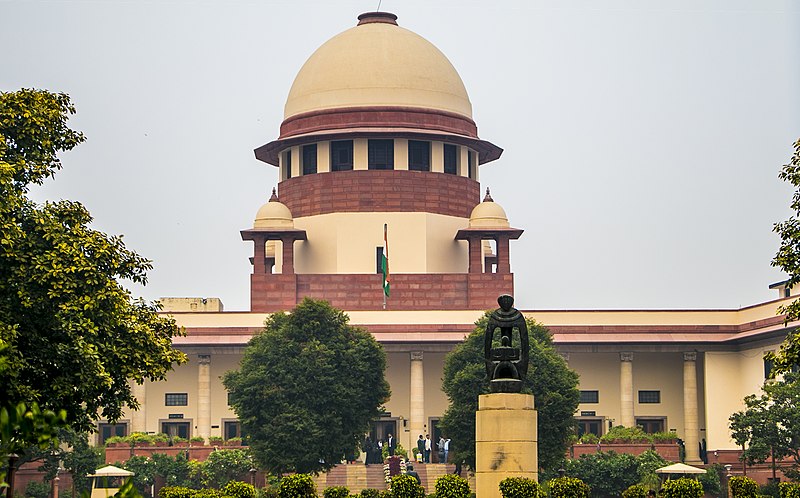The demand notices raised against the appellants for payment towards advertisement tax came to be affirmed (Para 1)
Appellant has displayed a name board with its trade name and business in the premises where business is being run. Second respondent issued a notice on 04.07.2015 demanding an amount of Rs.2,03,850/- for recovery of advertisement tax namely for the displaying sign board at its premises under Section 189-A of the Municipal Act, 1965. (Para 2)
By mere mentioning the name of the product in which the business establishment is being run would not partake the character of the advertisement until and unless by such display customers are solicited. In the absence of the display of the name board or sign board either by a business establishment or any other establishment including public offices and professionals or schools or colleges etc. it would drive the potential customer to such a situation where it would be neigh impossible to identify the business establishment from which the potential customer proposes to buy. However, if the sign boards so displayed would in any manner promote a particular product or goods or services or in other words it would attract customers to purchase a particular brand of product or goods or services and such display provides information about the product/ services and solicit the customers, it may amount to advertisement while the latter would only be an information to the public. The statutory provisions noted hereinabove does not empower the Municipal Corporation or its agency to demand tax for display of information through name boards or display boards. It would emerge from the statutory provisions noted hereinabove that the legislative intent was never to impose tax liability on sign boards but only on advertisement. Prima facie, the sign boards are display boards displayed by the appellants’ companies in the instant appeals would indicate that they have displayed on their respective premises the general information to the public about the products being dealt with by them and it would not reflect any soliciting of customers or induce the general public to buy the products dealt by the appellants and displayed on the board. Even in such circumstances, if it is held that it amounts to advertisement, such levy would be without authority of law and would find foul of Article 19(1)(a), 19(1)(g) and Article 265 of the Constitution of India. (Para 18)
In the instant case as noticed hereinabove, on the demand being raised both the appellants objected to the same and even before the ink on the objections so raised could dry or in other words even before it came to be considered they approached the High Court invoking the extra ordinary jurisdiction of the High court which was in due haste as such the dismissal of the petition though for a different reason which we have not subscribed our approval, yet the end result requires to be sustained and at the same breadth we hold that impugned notices are required to be adjudicated by the first respondent afresh in the light of objections filed to the said notices. Hence, we direct the first respondent to examine the objections filed by the appellants to the impugned demand notices expeditiously and at any rate with an outer limit of (8) eight weeks from the date of receipt of this order and in the event of issue being answered against the appellants the demand raised thereunder shall not be enforced for a further period of (8) eight weeks from the date of such order or determination. It is needless to state that appellants would be at liberty to challenge any adverse orders passed by the Commissioner in accordance with law. (Para 19)
SUPREME COURT OF INDIA
2023 STPL(Web) 337 SC
[2023 INSC 893]
M/S Harsh Automobiles Private Limited Vs. Indore Municipal Corporation
Civil Appeal No. 5362 of 2023 with Civil Appeal No. 5363 of 2023-Decided on 9-10-2023
https://stpllaw.in/wp-content/uploads/2023/10/2023-STPLWeb-337-SC.pdf







